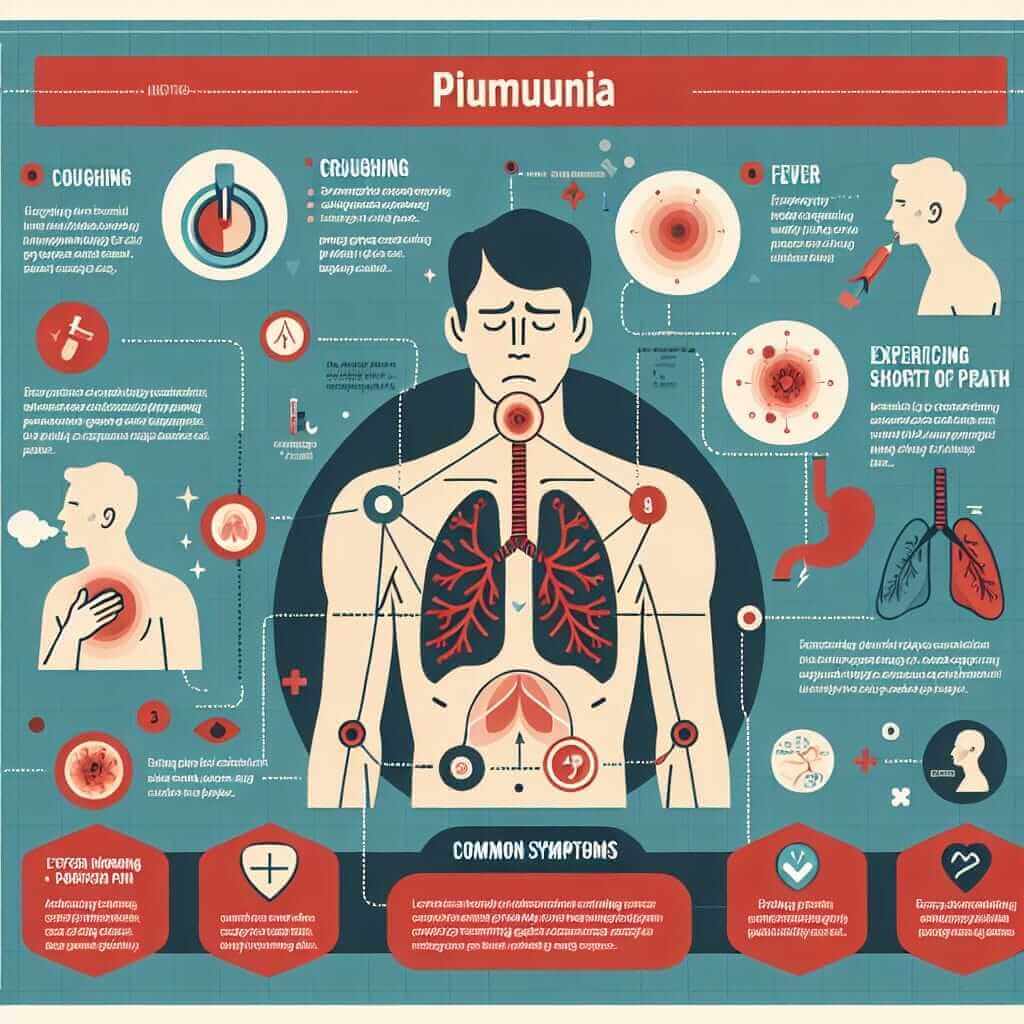Pneumonia is a common topic in the IELTS exam, particularly in the listening and reading sections. It is essential to have a good understanding of the vocabulary related to this illness to achieve a high score. This article will explore various terms related to pneumonia, discuss their usage, and provide examples of how to incorporate them effectively in your IELTS exam.
Let’s start with some key vocabulary:
- Pneumonia: (noun) /n(j)uːˈməʊnɪə/ An infection that inflames the air sacs in one or both lungs.
- Example: Pneumonia is a serious condition that can be fatal, especially in young children and older adults.
- Inflammation: (noun) /ˌɪn.fləˈmeɪ.ʃən/ A localized physical condition in which part of the body becomes reddened, swollen, hot, and often painful, especially as a reaction to injury or infection.
- Example: The doctor prescribed antibiotics to reduce the inflammation in his lungs.
- Air sacs: (noun) /ˈɛːr sæks/ Tiny air-filled sacs in the lungs where the exchange of oxygen and carbon dioxide takes place.
- Example: Pneumonia occurs when the air sacs in the lungs fill with fluid or pus.
- Contagious: (adjective) /kənˈteɪ.dʒəs/ (of a disease) spread from one person or organism to another, typically by direct contact.
- Example: Pneumonia can be contagious, spreading through coughs and sneezes.
- Symptoms: (noun) /ˈsɪmp.təmz/ A physical or mental feature that is regarded as indicating a condition of disease, particularly such a feature that is apparent to the patient.
- Example: Common symptoms of pneumonia include cough, fever, and difficulty breathing.
Understanding Pneumonia and Its Vocabulary
What is Pneumonia?
Pneumonia is an infection that causes inflammation in the air sacs of your lungs. This inflammation makes it difficult for your body to get enough oxygen.
Common Symptoms:
Knowing how to describe the symptoms is crucial for the IELTS speaking and writing tests:
- Cough: A sudden, forceful expulsion of air from the lungs.
- Example: A persistent cough is one of the first signs of pneumonia.
- Fever: An abnormally high body temperature.
- Example: He developed a high fever and chills, indicating a possible infection like pneumonia.
- Shortness of breath: Difficulty breathing or catching your breath.
- Example: The elderly patient experienced shortness of breath due to pneumonia, requiring immediate medical attention.
- Chest pain: Pain in your chest, especially when you breathe in or cough.
- Example: He complained of sharp chest pain while coughing, a symptom that pointed towards pneumonia.
- Fatigue: Extreme tiredness.
- Example: The pneumonia left her feeling constantly weak and fatigued.

Pneumonia in the IELTS Exam
Listening Section:
You might encounter a dialogue between a doctor and a patient discussing pneumonia symptoms, diagnosis, or treatment.
- Example:
- Doctor: “From your symptoms, it seems you might have pneumonia. We’ll need to do a chest X-ray to confirm.”
- Patient: “Pneumonia? But I haven’t had a fever.”
- Doctor: “Not everyone experiences all the typical symptoms. The X-ray will give us a clearer picture.”
Reading Section:
Passages on healthcare systems or disease outbreaks may mention pneumonia.
- Example:
- “Pneumonia remains a leading cause of death in children under five, particularly in developing countries with limited access to healthcare.”
Writing Section:
You might need to write about health challenges in your country, which could involve discussing diseases like pneumonia.
- Example:
- “The government should prioritize public health campaigns to raise awareness about pneumonia prevention, including vaccination and hygiene practices.”
Vocabulary Enhancement
Here are some additional terms related to pneumonia that can enhance your vocabulary:
- Antibiotics: Medicine that helps stop the growth of bacteria.
- Example: Antibiotics are the primary treatment for bacterial pneumonia.
- Virus: A microscopic infectious agent that replicates only inside the living cells of an organism.
- Example: Some types of pneumonia are caused by viruses.
- Vaccine: A substance used to stimulate the production of antibodies and provide immunity against diseases.
- Example: Getting vaccinated against pneumonia is especially important for young children and older adults.
- Hospitalization: The act of being admitted to a hospital for treatment.
- Example: Severe cases of pneumonia may require hospitalization.
- Recovery: The process of becoming well again after an illness or injury.
- Example: With proper treatment and rest, most people make a full recovery from pneumonia.
Conclusion
Having a strong grasp of vocabulary related to health is crucial for succeeding in the IELTS exam. By understanding and appropriately using the terms related to pneumonia, you can effectively demonstrate your language proficiency and achieve a higher score. Keep practicing with these words and explore other medical terms to expand your vocabulary further.